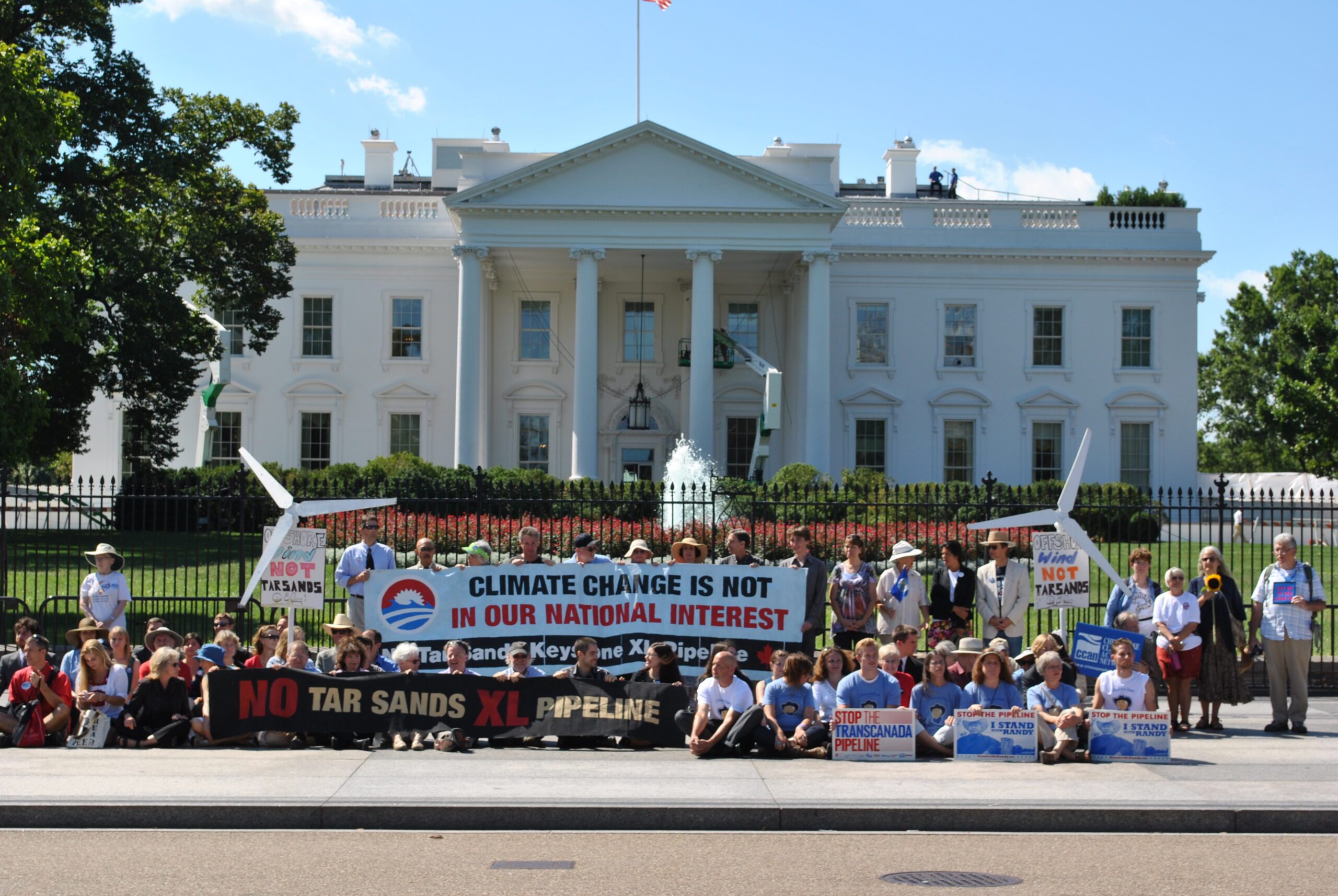Climate activists in the US secured a HUGE win last week, when President Obama rejected the building of the Keystone XL pipeline because of it’s impact on climate.
I’ve written before about the campaign and my admiration for 350.org, the organisations who have been behind so much of the campaigning. In the last few years, the pipeline has become a focal point for much climate activism in North America and beyond so the Presidents rejection last week is big win.
So what can other campaigns learn from this success? The first 3 lessons come from this brilliant video by 350.org co-founder and senior adviser Bill McKibben.
2 – Put your body on the line – right from the start of the campaign those involved have used peaceful, non-violent direct action at the heart of their approach. Together thousands of people have risked arrest, creating headlines and helped built a movement. The first period of direct action was deliberately timed when Congress wasn’t sitting to create a story, but since then they’ve kept the issue in the headlines by mobilising groups like the Sierra Club, celebrities, faith leaders, scientists and many others to get involved in non-violent direct action for the first time.
3 – Be creative – From circling the White House with a giant pipeline, to a Cowboy Indian Alliance protest on the National Mall, to the use of Obama’s campaign imagery in its graphics, the campaign has put creativity at the centre, providing lots of memorable images and moments.
I’d add a couple of others;
4 – Provided an abstract issue with a rallying point – Climate campaigning can be complicated with many of the policy solutions hard to mobilise around, but as David Roberts writes Keystone XL provided ‘clear villains, unambiguous markers of success, and local impacts that help draw support from other affected communities and demographics’.
5 – Drew on other movements – Those involved in Stop Keystone XL have a strong sense of where they fit within wider social justice struggles, as a result they’ve encouraged Keystone activists to get involved in Black Lives Matter protests, and invited those involved in the campaign to repeal ‘”don’t ask, don’t tell” in the US military to advise them.
But the final lesson goes to McKibben.
6 – Never Give Up – Remember when the campaign started, many climate activists in the US were bruised by the simultaneous failure to get domestic climate legislation passed (well documented here) and the collapse of the 2009 climate negotiations in Copenhagen, but the victory against odds is evidence that as Roberts writes ‘social change is nonlinear and devilishly hard to predict’ but yet ‘an important part of the most important fight in the world’.
